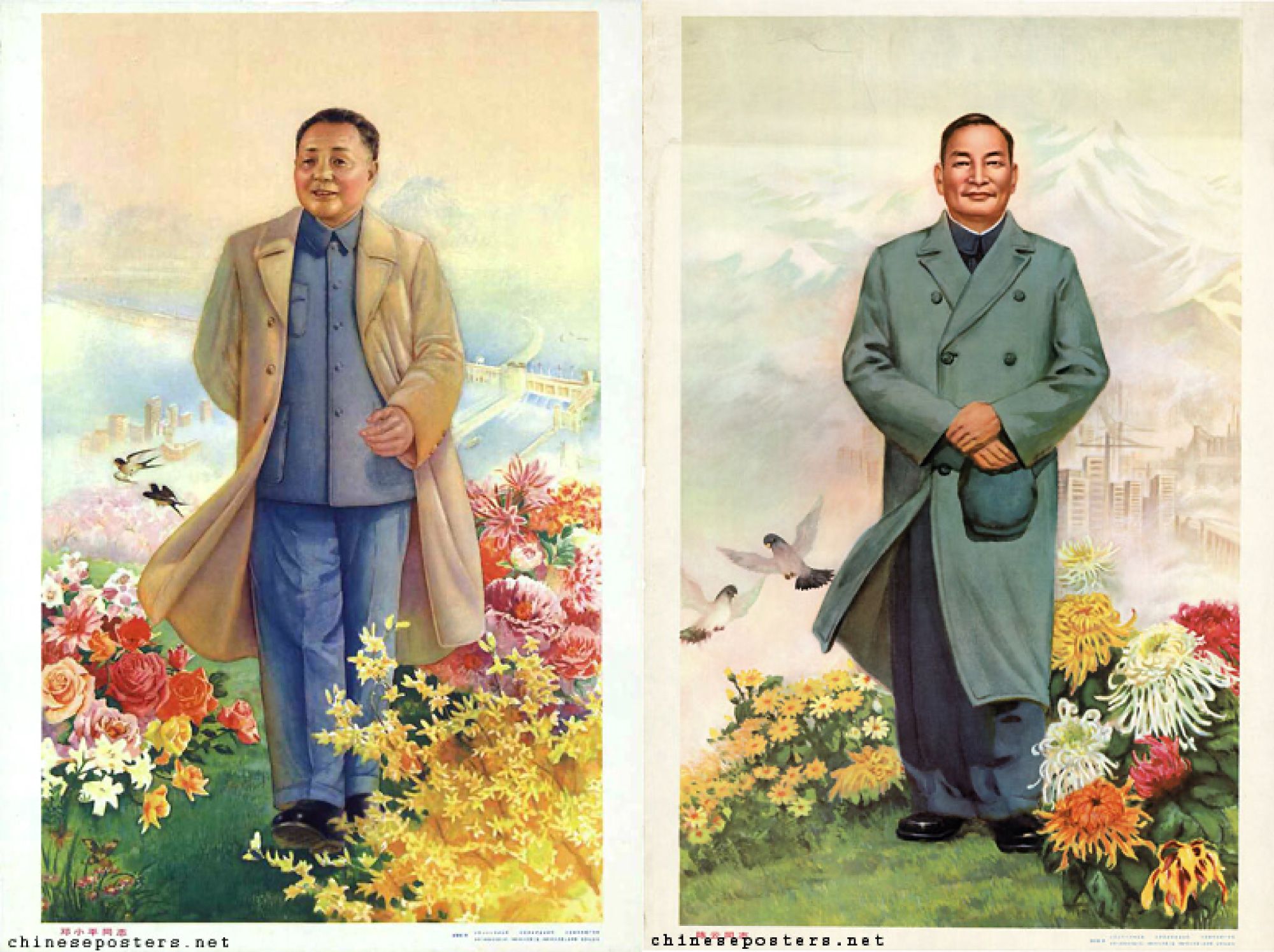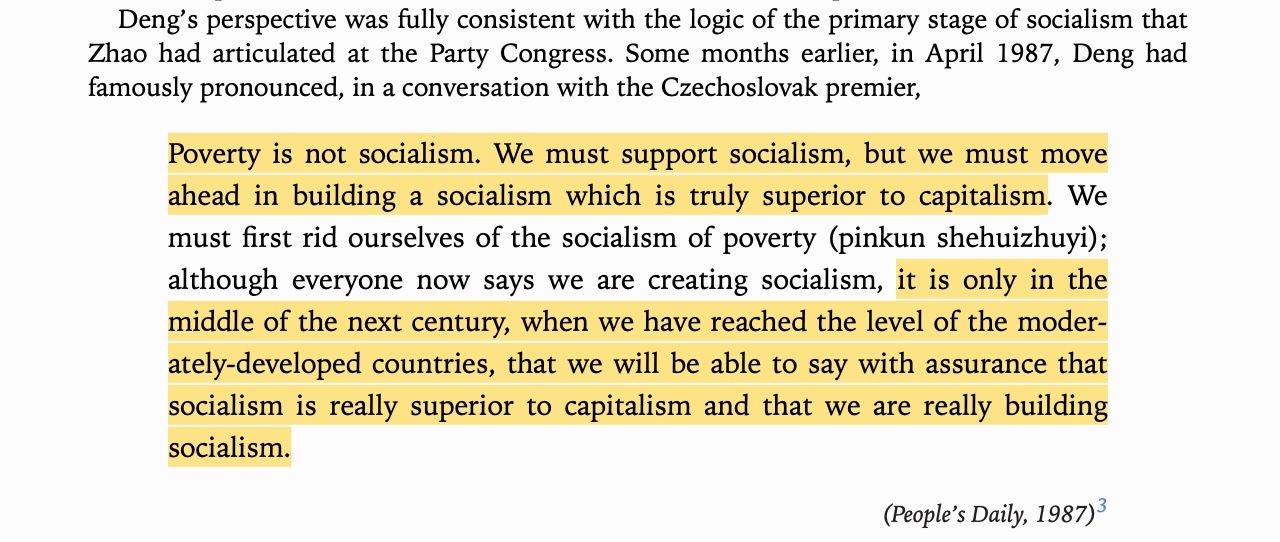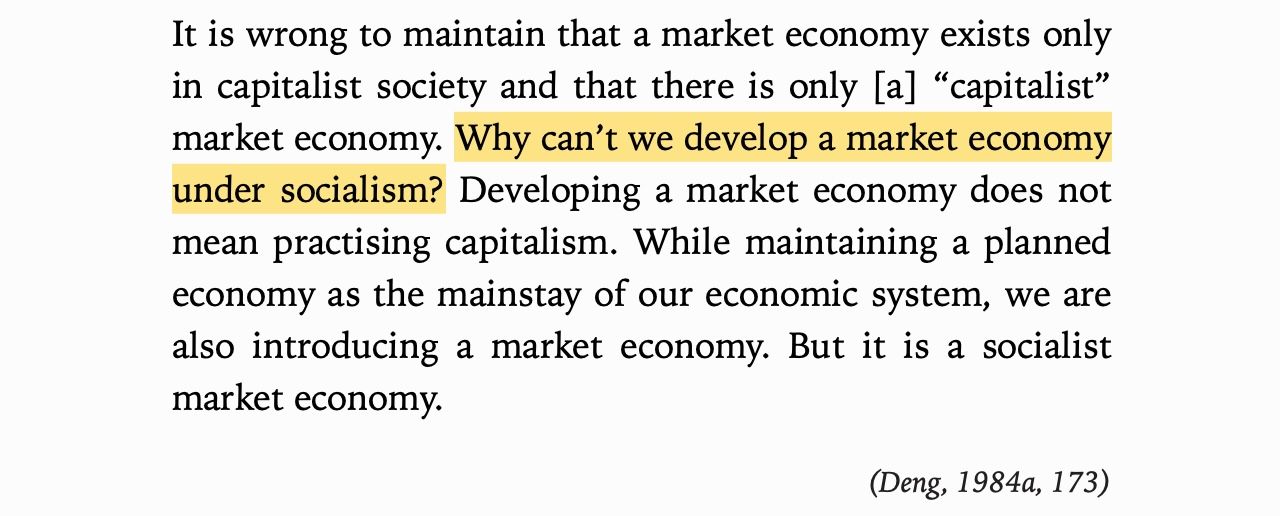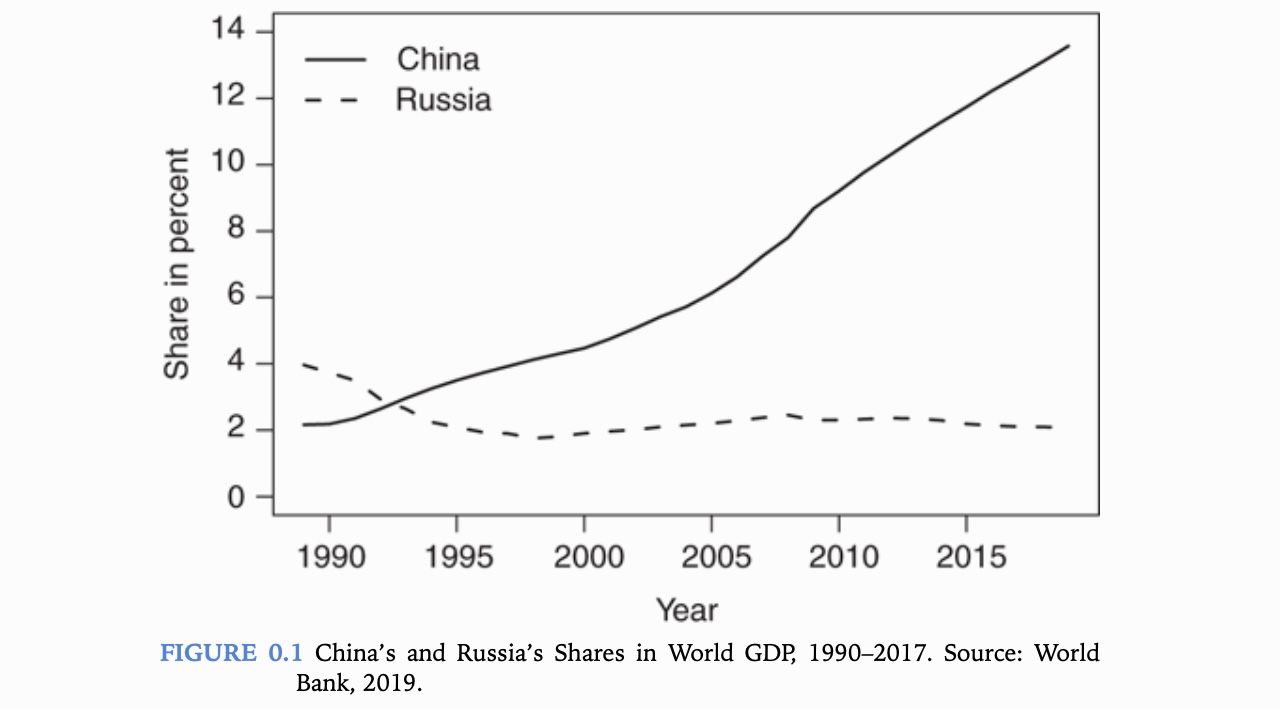China Didn't Copy Capitalism, They Developed Something Else
How China grew faster and longer than any country in human history

If you read The Economist you get the sense that China just copied western capitalism. If you read economic history, however, that's not what happened at all.
China developed precisely because they didn't just copy capitalist theories wholesale. After leaping into Soviet communism, they didn't just undertake a 'Great Leap West'. Instead, they studied, they debated, and they applied markets to their own context, within their own strategic goals. They gradually experimented their way forward, one step at a time. And it worked.
As Branko Milanović said, China's economic reforms "set the stage for the fastest and longest growth in world history." Meanwhile most countries that applied shock therapy (essentially copy/paste capitalism) ended up violently shocked to death.
I read Isabella M. Weber's How China Escaped Shock Therapy trying to find out what we could copy from China, but that was the wrong question. China learned from everyone, but they ultimately developed themselves. That's the most vital lesson the developing world must learn.

Copying Kills
By the 1980s, the surviving cadres of the Communist Party of China (CPC) already knew this lesson well. They had copied communism wholesale from the Soviet Union in the 1950s and everyone fucking died. As the economist Xue Muqiao told a World Bank Conference in 1982 (via Weber):

After Mao died, there was broad agreement that China needed economic reform, but this time the CPC really looked before they leapt. They brought back economists from the countryside (where they'd be sent for re-education). These young scholars had both book-learning and lived experience of rural poverty. The CPC sent economists abroad and brought foreign economists in.
At the highest level, the party made a shift from political revolution (which was won) to the economic stage of socialism (people were still broke). Hua Guofeng succeeded Mao and "redefined revolution itself as “liberation of productive forces” and elevated national economic development to the highest priority." Then Deng Xiaoping took over as leader and really made it happen. He exhorted cadres to:
- “Seek truth from facts” (实事求是) and said
- “It does not matter if it is a yellow cat or a black cat, as long as it catches mice.”
Deng laid out ambitious, autochthonous goals which were not just "communism broke, capitalism fix it." The opposite really. Deng's vision was that socialism would surpass capitalism by 2050, and he rallied people around that goal.

Deng said "Poverty is not socialism. We must support socialism, but we must move ahead in building a socialism which is truly superior to capitalism." Whereas the western development model is essentially becoming western, this was very different.
Deng also said that markets weren't necessarily capitalist.

This was how Deng set the direction, where they would go.
How they would get there was set most evocatively by Chen Yun. Chen was a revolutionary OG, and he had participated in 'economic warfare' during the revolution. In the 1940s he said "only if we can solve the problem of food and clothing for the masses can we become leaders of the masses. Thus, a revolutionary businessman is an outright revolutionary."
By the 1980s people really started listening to Chen. Two pithy phrases in particular came to guide development, 'groping for stones to cross the river' and 'like a bird flying in a cage'. As he said:
- “Admittedly reform must rely on proper theory, economic statistics and forecast, but more important is to start with experiments at selected points and to draw lessons from experience at the right times, this is to be groping for stones to cross the river [摸着石头过河]. In the beginning, steps must be small, walking slowly.”
- “For Chen Yun, the market should operate within the boundaries of a socialist planned economy, like a bird flying inside a cage.”
What's important here, what we should copy, is that none of the major ideas were copied. They borrowed from all over, but everything was ultimately adapted to their own goals and context. China took copious notes, but then they did their own thing. Largely because they had learned a painful lesson from the Soviet experience. Wholesale copying kills.
Yeah, Copying Kills
In the 1990s China and the former USSR tragically diverged. Starting from similar bases, China and Russia both liberalized in very different ways.
In the USSR the Communist Party was gone, so there was really no competing ideology to capitalism. They just lurched straight into shock therapy, copy/pasting the "Washington consensus" of package reforms. Specifically,
“The package consisted of (1) liberalization of all prices in one big bang, (2) privatization, (3) trade liberalization, and (4) stabilization, in the form of tight monetary and fiscal policies.”
Shock therapy was supposed to be short-term and then you'd be chilling in capitalist utopia. But it didn't quite work out that way. Public monopolies became private monopolies, liberal democracy became oligarchy, and the Russian people basically got shocked to death.
"As a result of shock therapy, Russia experienced a rise in mortality beyond that of any previous peacetime experiences of an industrialized country... The average real income of 99 percent of people in Russia was lower in 2015 than it had been in 1991."

This tragedy sadly played out in post-socialist countries all over the world.
"Almost all of the post-socialist countries that applied some version of shock therapy experienced a deep and prolonged recession. Beyond the devastation documented by economic indicators (see above), most measures of human well-being, such as access to education, absence of poverty, and public health, collapsed"
Many countries learned (or didn't) learn the painful lesson that China learned in the 1950s. You can't just copy paste ideologies. Whether you copy communism or copy capitalism, copying kills. So do your own homework kids! Go at your own pace! That's what China did, at least the second time around.
Seriously, Copying Kills
For years the CPC followed Chen Yun's advice that "the market should operate within the boundaries of a socialist planned economy, like a bird flying inside a cage." However by the last 1980s cadres were getting impatient and they thought they'd try a little shock therapy. Just the tip.
At the 13th Congress in 1987, Premier Zhao Ziyang announced big price reforms and Chen was so pissed that he walked out. "In Chen’s eyes, China was about to let the bird free in the late 1980s."
Prior to this, prices had been kept on a dual-track system. Grain, for example, was bought at a guaranteed price by the state (the planned track) and people could sell any surplus (the market track). There was corruption between the tracks and it was slow, so Deng et al decided to just bring the tracks together in 1988.
It was a complete trainwreck.
When the changes were announced millions of people did like Chen and just walked out. "Panic buying, bank runs, and worker protests immediately began to spread outward from big cities all over the country." A bunch of grievances came to a head in the Tianamen Square Massacre in 1989, Zhao was ousted as Premier, and all further reforms were halted until 1992. After rapid price reform nearly killed them, the CPC did a hurried ⌘Z. Undo! Undo! Undo!
"The government rolled back the program, called for recentralization of power, reintroduced price controls over important commodities, and imposed a strict retrenchment policy to regain control."
When reform finally came back years later, the Chen slow-and-steady model was dominant again. And it mostly stayed that way. The bird stayed in the cage, feet stayed on stones, China slowly moved forward one step at a time. And that's how they got where they are, relatively unfucked.
As Weber said, "China’s escape from shock therapy meant that the state maintained the capacity to insulate the economy’s commanding heights—the sectors most essential to economic stability and growth—as it integrated into global capitalism."
Copying China
Living in the globe, consuming western media, however, all I knew was that China had become capitalist. The story we were sold was that communism just failed and capitalism won and that the end of history, though delayed, was on its way. Every country was going to become a liberal, capitalist democracy, and if they had to be bombed or sanctioned into it, well, you're welcome.
But living in 2021, we can see the results. Shock therapy killed people. Wars killed people. Climate collapse is killing people. Vaccine monopolies are killing people. And the western countries profit from it all. Capitalism has truly run amok. Deng said socialism would be superior to capitalism by 2050, and it's already looking pretty good.
China is almost the richest country in the world. Their goal of a "moderately prosperous society" (小康社会) is more sustainable than endless, unequal growth. During a pandemic they not only saved themselves, they're vaccinating most of the world. I'm not saying be China, but we can be like them and learn, even from people we consider enemies.
The lesson from China is do your own damn homework. There is no magic theory that just develops everyone. You have to find your own path starting from where you are. You've got to cross the river gradually, feeling for stones. You've got to keep the bird in a cage. Most importantly, you have to study everyone and develop yourself. That is to say, you've got to find some pithy folk proverbs of your own.
I hope it goes without saying, but I highly recommend Isabella M. Weber's book, she's done a lot of reading (and quoting) of primary sources and it really gives you a much deeper understanding than reading the news.
How China Escaped Shock Therapy (buy/borrow)
Also I spent a long time on this animated GIF which just ending up being confusing AF but I include it here:
